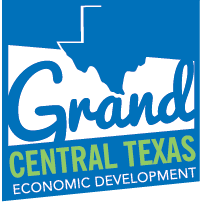Projects may be eligible for Federal, State, and/or local incentives. Incentive packages are determined by type of business, quality of jobs created or retained, wages paid, capital investment and overall community impact. The communities of Grand Central Texas Economic Development Partnership are ready to work with you to identify the incentives available for your potential Central Texas location.
To see local incentives offered by each Grand Central Texas Community please view the links at the bottom of this page.





